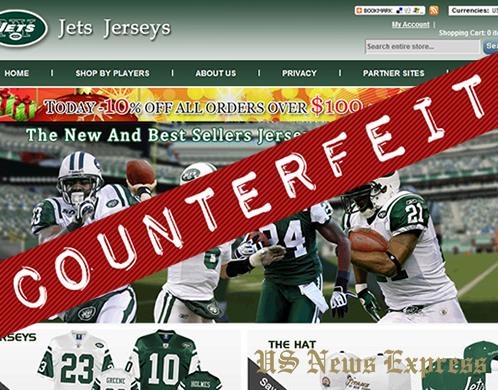WASHINGTON – Several thousand copyright-infringing websites and third-party marketplace listings selling counterfeit pharmaceuticals, automotive parts and other fake items to unsuspecting consumers have been criminally and administratively seized and removed in an effort that combines the resources of global law-enforcement agencies and industry.

There were roughly 15,000 illegal websites seized and 48,000 erroneous ecommerce links removed over the past year as part of Operation In Our Sites VII, an effort conducted by U.S. Immigration and Customs Enforcement (ICE), Europol, Interpol and members of industry to crackdown on individuals using the Internet to peddle bogus goods and other copyright-protected material that threaten the health and safety of shoppers. The initiative was coordinated and supported by the ICE-led National Intellectual Property Rights Coordination Center (IPR Center).
The global enforcement action highlighted the effective collaboration between law-enforcement authorities from 27 countries, anti-counterfeiting associations and industry representatives, who made substantial contributions to the success of this operation. Dozens of brand owners and industry organizations representing name-brand footwear and apparel, cosmetics and personal care products, active wear and sporting and entertainment associations participated in this effort, and were solely responsible for targeting listings on popular ecommerce sites selling imitation items.

It was a successful year for online intellectual property enforcement, as ICE’s Homeland Security Investigations announced they had arrested and charged the owner and operator of Kickass Torrents (KAT), a popular website that enabled users to download and distribute copyright-protected content, with criminal copyright infringement and conspiracy to commit money laundering. The estimated value of pirated content reproduced and distributed on KAT was over $1 billion, and operators of the website turned their criminal enterprise into a net worth of $54 million, with annual advertising revenue of between $12-22 million.
Each year, the market is flooded with counterfeit products being sold at stores, on street corners and online. The internet has facilitated the sale of counterfeit merchandise online and criminals have taken advantage of the internet to deceive, sell and ship fake products directly to unsuspecting consumers. The most popular counterfeit products seized each year include headphones, sports jerseys, personal care products, shoes, toys, luxury goods, cell phones and electronic accessories.
Founded in 2000, the IPR Center – formally codified in the Trade Facilitation and Trade Enforcement Act of 2015 – is one of the U.S. government’s key weapons in the fight against criminal counterfeiting and piracy. The center uses the expertise of its 23 member agencies to share information, develop initiatives, coordinate enforcement actions, and conduct investigations related to IP theft. Through this strategic interagency partnership, the IPR Center protects the public’s health and safety, the U.S. economy and the war fighters.



















